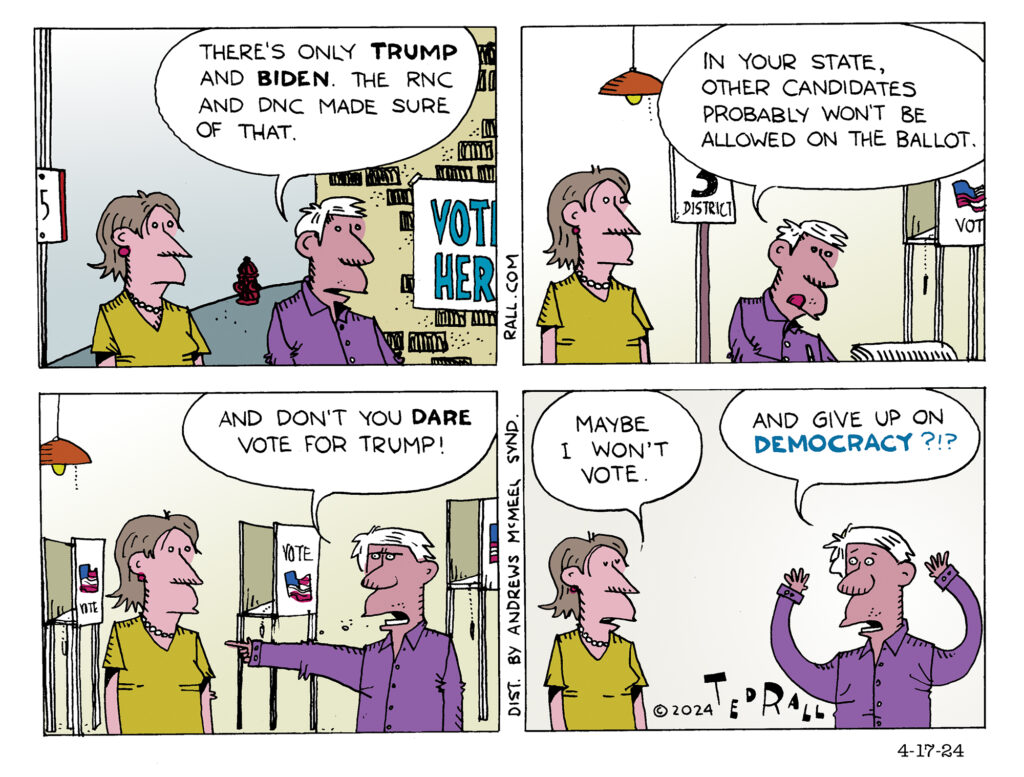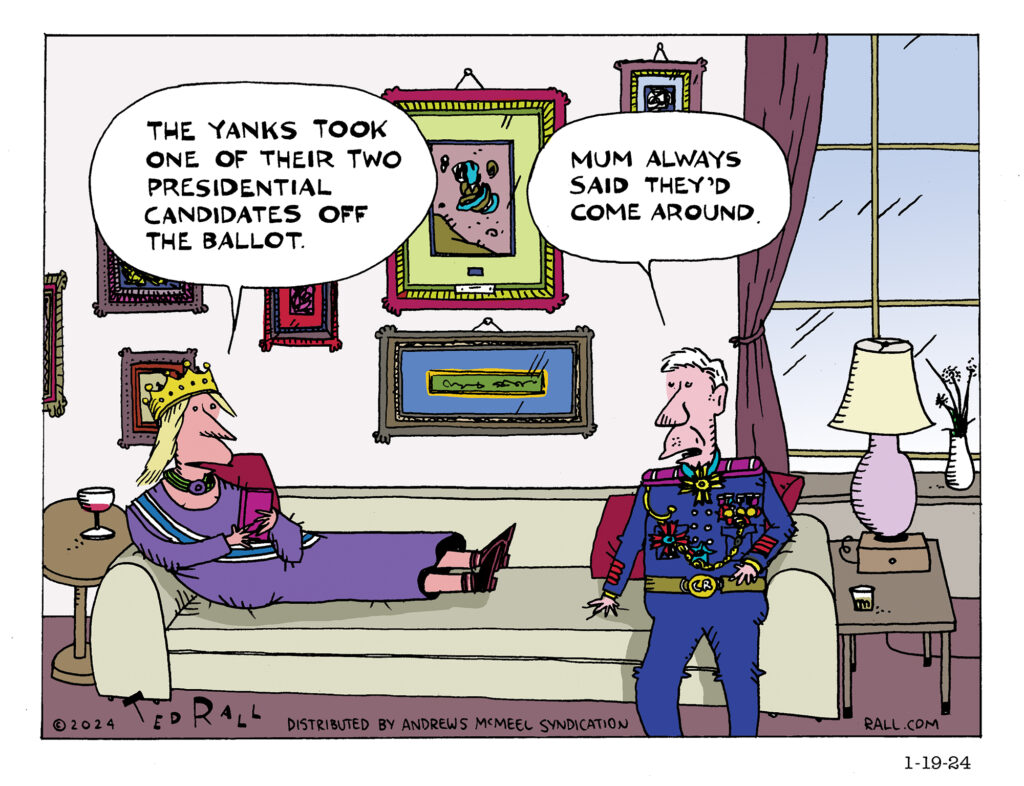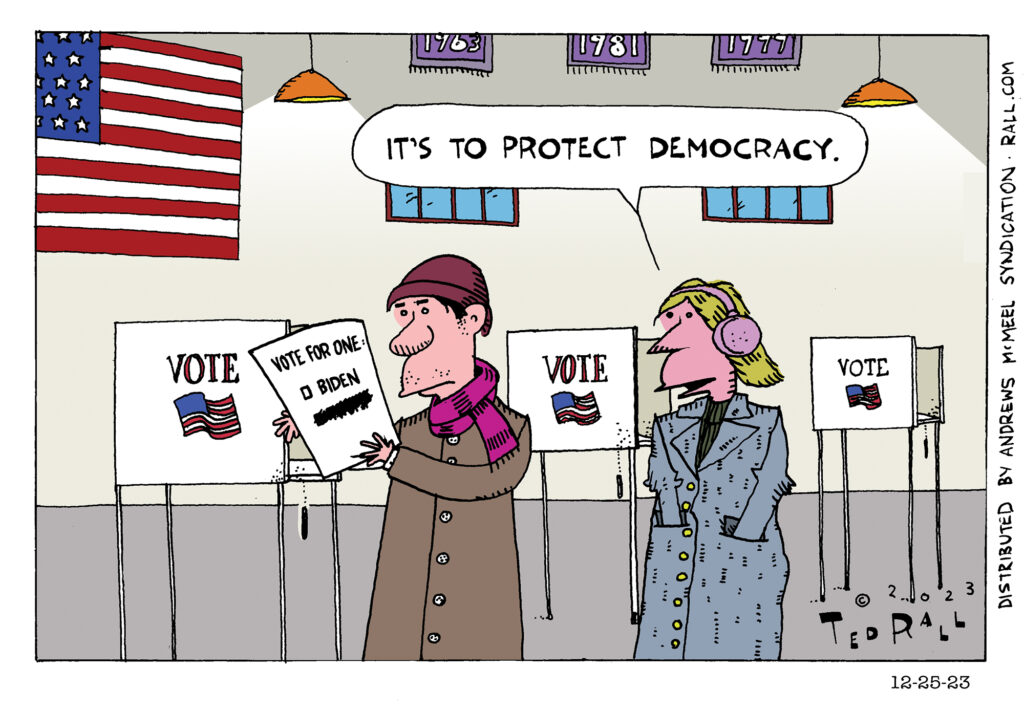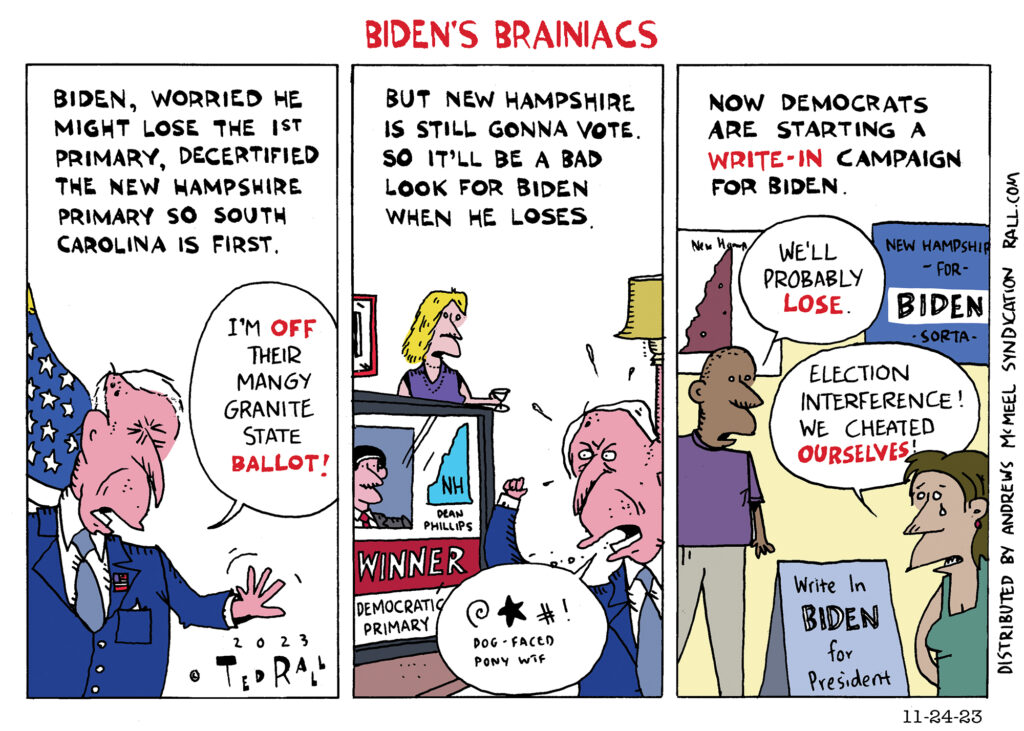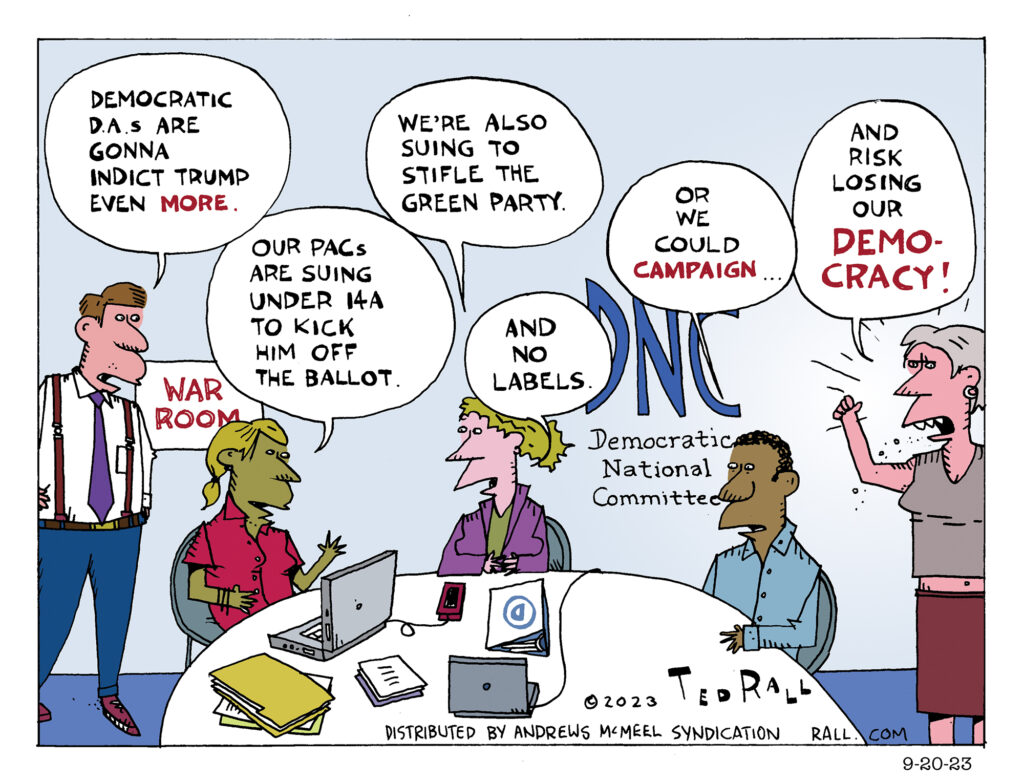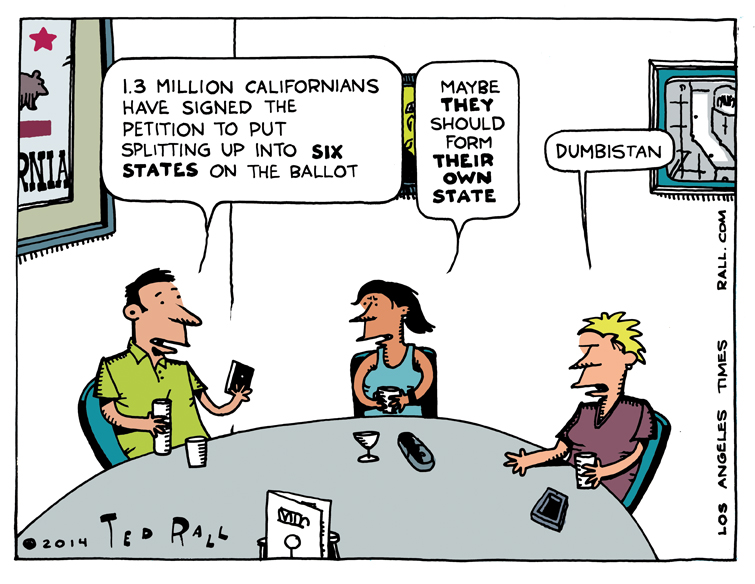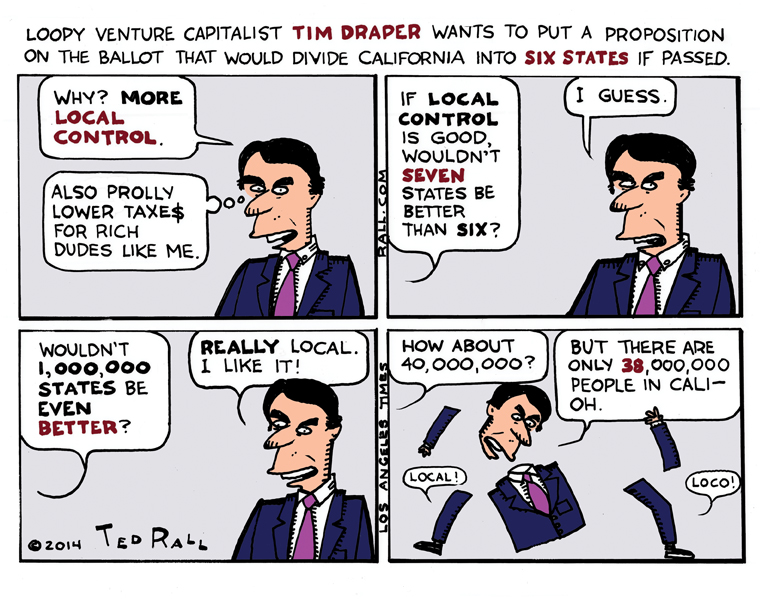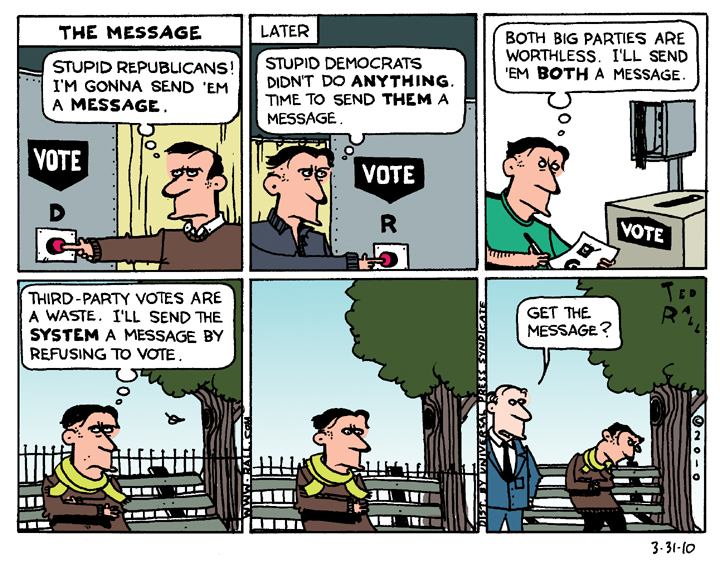Between his terrifying debate performance and his refusal/inability to appear in public without reading from a Teleprompter, it’s pretty clear that Joe Biden hasn’t been the president of the United States for quite some time, assuming that he ever was. His big campaign argument was that he was defending democracy, but this lack of transparency is more indicative of a totalitarian state than a democracy. Who has been making the big decisions in the Biden Administration for the last few years? No one knows.
Unforced Error in the Granite State
The Biden campaign had what they thought would be a clever solution to their fear that the president would lose the New Hampshire primary. They decertified NH and made South Carolina first. Then Dean Phillips challenged Biden in NH. Faced with the prospect that Biden will lose the first primary (even if it’s unofficial), Biden has launched a write-in campaign for the race from which he asked to be removed from the ballot.
The U.S. Is Not a Democracy

Is a system working as well as possible? Inertia lulls people into believing that legacy products are great—even that they’re perfect—without objectively considering whether it’s really true. The QWERTY computer keyboard works but the 1936 Dvorak version is superior. Skim milk makes you fatter. The U.S. may still be a shining city on a hill but our Constitution has become so out-of-date that new nations no longer refer to it as a template for their own legal charters.
Ask yourself: if our political system were created today, by a group of intelligent people, what would it look like? If the real-world system we see now falls short of that ideal, there’s room for improvement.
What if we were to scrap our centuries-old Constitution? What if we built a shiny new government from the ground up, without considering legacy or precedent?
This is a complicated question. Only one of out of four Americans would vote to repeal the Second Amendment, so the right to bear arms might make it into a new charter. Much of that support, however, derives from voters who own the hundreds of millions of guns already in circulation. An America without a legacy of individual firearms ownership would be much less likely to codify it as a fundamental right.
So what would an ideal representative democracy look like for the United States, 2023 edition?
Nothing like what we have now.
Every citizen of sufficient age to exercise sound judgement should be allowed to vote. Our society currently says 18. But there are strong arguments in favor of allowing children to vote as well as for raising the age of enfranchisement to 25. If mental acuity matters, what about the one out of ten Americans over age 65 who suffers from dementia, or those with very low IQ?
Among those permitted to cast ballots, each vote ought to count equally. The principle of one person, one vote is almost universally accepted.
Yet the current system falls dismally short of our professed ideal. Due to the electoral college, the vote of a resident of Wyoming in a presidential election counts 3.6 times more than that of someone who lives in California. People in the District of Columbia enjoy no vote at all; nor do the 4 million Americans who reside in overseas territories. Gerrymandering through redistricting has radically reduced the weight of a vote cast by a Black citizen compared to a white one. Forty-eight out of 50 states either ban convicted felons, people in prison and/or on parole from voting; the U.S. has some of the most vicious disenfranchisement laws in the world.
If a representative democracy is healthy and vibrant, voters ought to be able to choose from a broad selection of candidates who represent a wide range of ideological viewpoints that reflect the broad diversity of opinions in our vast country.
In this respect, the U.S. is not a democracy.
We only have two major parties. But not by choice. 62% of Americans say they want the option of a third party; dissatisfaction with the Democrats and the Republicans helps explain why the U.S. has one of the lowest voter-turnout numbers in the world. Smaller parties are barred from presidential debates, don’t receive coverage in the press, are stymied by draconian ballot-access laws drafted by Democrats and Republicans, and bludgeoned by nuisance lawsuits filed by the big two in order to drain their resources and block them the ballot.
In many elections, there aren’t even two parties. In 2016, 42% of races for seats in state legislatures were uncontested, meaning there was only one candidate on the ballot. There’s no word whether any of them was named “Saddam.” In 2022, a whopping 57% of state elections for judges were unopposed. I live in New York, where the Working Families Party provides an illusion of choice by appearing on the ballot next to the Democrats. But the WFP’s candidates are the same as the corporate Democrats.
Ranked-choice voting, promoted by progressives, sometimes leads to anti-democratic results. California’s small state Republican Party rarely has one of its candidates among the top two vote-getters who move past the first round to the general election.
Party primaries can be coronations, as when Barack Obama and Donald Trump essentially ran unopposed in 2012 and 2020, respectively.
Candidates are not legally bound to carry out their election promises if they win. Evolving circumstances or further reflection—or dishonesty—may prompt a politician to change course after victory. But there is accountability for perfidy, whether real or imagined, in a vibrant representative democracy. Rather than outsource politics to a political class every two or four years or whatever, citizens in a high-functioning representative democracy keep informed beyond the carnival of election season, express their opinions and hold their representatives’ feet to the fire with public protests and demonstrations, as we’re currently seeing in France after their imperious president ignored popular will by increasing the national retirement age without holding a parliamentary vote.
The U.S. does not have a high-functioning representative democracy. Voters are uninformed, don’t trust the media and can’t agree on the facts at the heart of stories and issues like whether climate change is real or Biden won the election.
Worst of all, we fail to hold our representatives accountable when they ignore us. Abortion is no longer legal in most states, 85% of American adults favor abortion rights, yet the streets remain calm and protester-free. Two out of three Democrats want big immediate action against climate change, yet they don’t have anything to say to President Biden—who probably blew up a major gas pipeline and created an ecological disaster, and authorized oil drilling in the ecologically fragile Alaskan wilderness.
If we were to create a new political system out of whole cloth, it wouldn’t look anything like this.
(Ted Rall (Twitter: @tedrall), the political cartoonist, columnist and graphic novelist, co-hosts the left-vs-right DMZ America podcast with fellow cartoonist Scott Stantis. You can support Ted’s hard-hitting political cartoons and columns and see his work first by sponsoring his work on Patreon.)
LOS ANGELES TIMES CARTOON: Dumbistan
Silicon Valley zillionaires feel entitled. They like to get everything their way. They order off the menu. Steve Jobs, who famously parked across two handicapped spaces, prompted a note riffing on Apple’s famous advertising slogan: “Park different.” So it was bound to a matter of time — a short time — before they began screwing around with politics, and doing it in their usual brash, short-sighted way.
Timothy Draper made his money the old-fashioned way: his father made a bunch of smart investments that paid off. Like most members of the American nobility, being born at mile 25 ½ in the marathon of life has convinced Draper that he knows best how to cure everything that ails California:
Split the state into six smaller states.
Draper has submitted 1.3 million signatures to state election officials, which allowing for disqualified signatures will probably be enough to meet the 807,615-signature requirement to place his referendum — the Chinese Communist Party would call his idea “splittism” — on the ballot for consideration by voters in November 2016.
California, Draper says, is too big to not fail. With six smaller states governed from six new capitals, he argues, these state governments will be closer to the people — geographically, anyway. Personally, I don’t see the logic. If geographic proximity led legislatures to take better care of constituents, wouldn’t the city governments of state capitals be cleaner, safer and less corrupt than cities and towns further away from legislators’ offices? From Sacramento to Austin to Harrisburg to Albany, however, there is no evidence of that.
Patrick McGreevy writes in The Times:
A Field Poll in February found that 59% of California voters oppose a breakup of the state, Maviglio noted, and the strategist predicted the business community and Democratic and Republican leaders will will campaign against it. “There is no groundswell of support for this,” said Maviglio. California, he said, “is going to bea laughing stock on [TV comedy shows, including] Jimmy Fallon and David Letterman because of this idea. For anyone considering investment in our state, this raises a question of uncertainty.”
Even if voters approve the ballot measure, breaking up California would have to win approval of Congress, which he said is doubtful. “Is Congress going to give California 10 more senators?” Maviglio asked.
The Republican House? Give Democratic California 10 more senators? Probably not.
So this is a perfect referendum: except for its dubious constitutionality, political unpopularity and almost certain unfeasibility. Which makes me wonder: who are the 1.3 million Californians who signed Draper’s petitions? Sure, I know that voting to put something on the ballot isn’t the same thing as turning up to vote and then supporting a measure. Still, some ideas are so dumb we shouldn’t have to waste our time discussing them in the first place — and this one clearly qualifies.
Which has me thinking: maybe these people need a place all to themselves.
A dumb place.
LOS ANGELES TIMES CARTOON: Why split Calif. into only six states? Go libertarian all the way!
Before now I was unclear on why California should be divvied up into six smaller states. But I didn’t feel bad. Tim Draper, the Silicon Valley venture capitalist billionaire guy who is trying to collect enough signatures to put a California Balkanization proposition on the ballot, seemed unclear about his idea too.
Thanks for George Skelton’s column, however, Draper has finally shed some light on why California should fade into history, replaced by six new states (assuming Congress were to admit them to the Union), one of which would be called, um, Jefferson.
Skelton explains: “Draper’s split-up-California proposal, he contends, would result in more local control and focus on regional problems.”
Local control! Bien sur.
Draper may or may not be nuts, but you can’t reflexively dismiss the argument that Sacramento may be a too far away to understand the issues affecting people 600 miles away in Calexico.
But that’s where I get stuck.
If more local control is better, and if the way to get more local control is to divide the state into smaller statelets, the question locally follows: why six? Why not seven or eight?
Connecticut is a small state. It’s well run. Why not cut California into 49 Connecticut-sized states?
Actually, scratch that “well run” part. The Nutmeg State ranks 41st out of 50.
Um, Rhode Island? Smallest of them all?
Number 47.
Anyway.
Let’s assume, for the sake of argument, that there was evidence to support the notion that smaller is better. Where does it stop? Why not declare every one of California’s 38 million people the sole citizen of their own state, with their home their capitals? With 76 million United States Senators, that would give The States Formerly Known as California serious juice in Congress.
(Draper argues that ex-California would have 12 Senators, which would be better than two. Though he doesn’t explain why they’d necessarily cooperate with each other, what with having gone their separate ways in the first place specifically because they don’t have enough in common to stay together.)
Speaking of inconvenient truths, few people have brought up the fact that the U.S. Constitution doesn’t allow new states to be created by splitting up existing states (as happened, for example, when West Virginia left Virginia) without approval of Congress. With the Senate controlled by Democrats, it’s unlikely they’d sign off on a new configuration that would add a net of Republican seats.
Everything said, I don’t know if splitting the state would be a net benefit or net disaster. What I find fascinating is the transparently faulty logic being floated for a project with breathtaking implications — from a man who’s obviously smart enough to know better.


